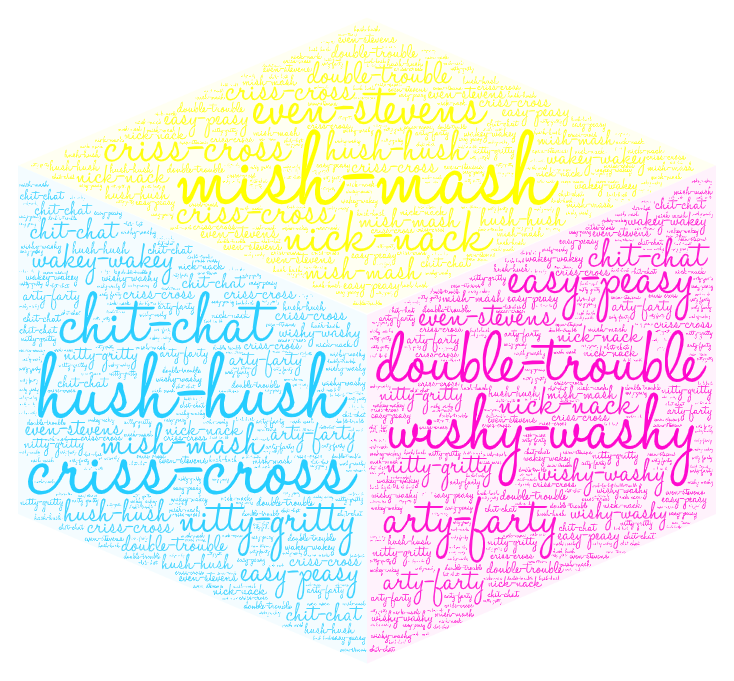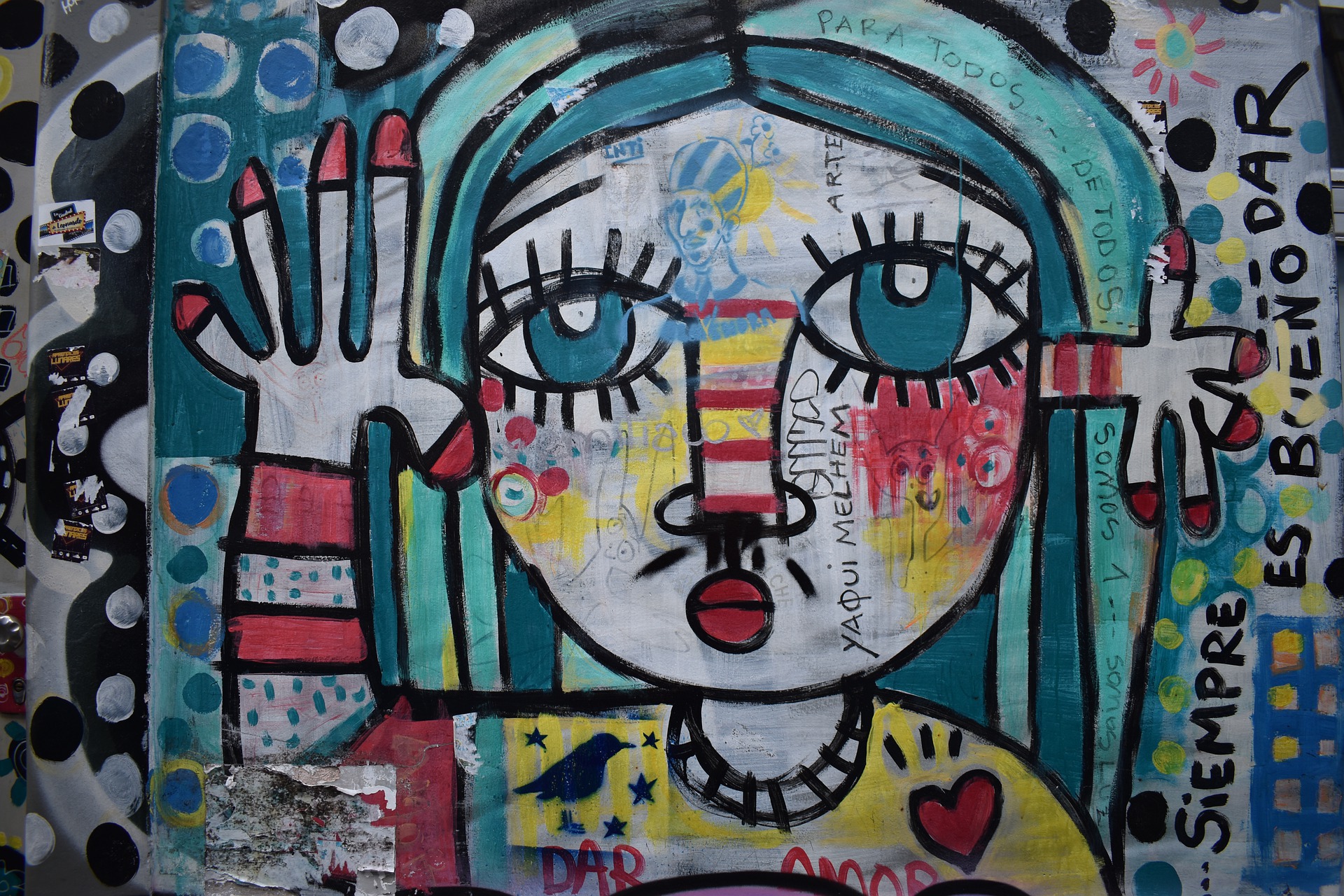 When I first heard the word mish-mash, it was love at first sight.
When I first heard the word mish-mash, it was love at first sight.
We were sitting by the fire in the rustic living room of an old National Trust farmhouse located in a remote valley of the Peak District. A perfect end to a day of volunteering work in the morning, and an afternoon in the hills.
I was having a drink and chatting about languages with the international team. One of them (a fellow volunteer at the time and now a close friend) used the word mish-mash. It was clear from the context that she meant something like a jumble, a mixture of things. A pot-pourri. I asked her to repeat the word just to hear the sound of it in her beautiful British accent. Mish-mash! Love it.
Melodic words like mish-mash, flip-flop or hush-hush are called reduplicatives, which repeat either the whole word or some of the sounds in the first word.
What follows is, first a definition of the term reduplication, and then a list of eleven of my favourite reduplicatives, other than mish-mash. In line with my general approach, I have selected some that are commonplace in daily speech and can be useful for English learners’ understanding and speaking.
Definition from:
![]()
Reduplication is when a word or part of a word is repeated, sometimes modified, and added to make a longer-term, such as aye-aye, mish-mash, and hotchpotch. This process can mark plurality or intensify meaning, and it can be used for effect or to generate new words. The added part may be invented or it may be an existing word whose form and sense are a suitable fit.
My favourite reduplicatives
Note: This is playful, casual language best to be avoided in formal contexts. like a CAE exam formal writing.
Arty-farty
You can use this funny-sounding adjective to refer to people who try too hard to show off their artistic skills or knowledge; in a pretentious way. It is pejorative.
“I didn’t know they were such a snobbish arty-farty couple. They invited us over and spent the whole evening going on and on about the people they knew in the art world.”
Nitty-gritty
The essentials of something; the basic facts. It is often used with the phrasal verb “get down to”.
“We’ve been rambling for quite some time now and we need to discuss the new safety measures. Let’s get down to the nitty-gritty. How many people will be allowed in each classroom?”
Chit-chat
Casual talk about unimportant things.
“There was a bit of chit-chat and no real decision making. We will have to meet again.”
Criss-cross
Lines crossing each other. For example paths, streets, or plane trajectories.
“One can easily get lost in that area without a proper map; it’s a criss-cross of paths with little indication as to where they are going.”
Double-trouble
Twice as much trouble.
“Asking her for help means double-trouble. Her intention is good but by the time I explain how to do it, I will have done it myself.”
Hush-hush
Something confidential, a secret.
“Our plans are hush-hush. Please, don’t let anybody in on the secret.”
Easy-peasy
Very easy.
“Today, we are going to learn the comparatives. Easy-peasy!“
Even-stevens
Equal; nothing owed.
“Deal! You teach me how to play the guitar; I teach you English. We are even-stevens.“
Knick-knacks
Cheap ornaments.
“When they first moved together, her mother-in-law gave them a bag of knick-knacks that they found utterly useless.“
Wakey-wakey
It is like saying wake up.
“Wakey-wakey! The sun is shining and breakfast is ready.“
Wishy-washy
Without firm, clear ideas.
“I was expecting to find some answers in this book, but it was full of wishy-washy inconsequential ideas.“
Bye, bye!
(Also a reduplicate)
